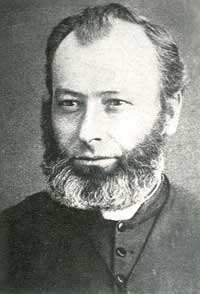
That year, one of my sisters was hired by the trustees to run the school. I did not want to go to my sister’s school: I thought I knew as much as she did! But when opening day came, my father threatened to bring me there by the hand, so I took my bag and went to school grumbling. After the prayer to the Holy Spirit, my sister introduced herself briefly to the pupils: “It is with pleasure that I accepted to teach you, children that I know and who me know. I hope that you will be good.” I interrupted her saying: “Yes, mum.” Two of my small companions burst out laughing. “Zachary Lacasse, she said to me, you will respect me like the others.” “But I respect you too; I call you “mum.” “Take your books and get out, you wise guy.” “Yes, mum, that is what I
The next morning, it was still dark when my father called me: “To work now, quickly. After your prayer, you will go to work on Claude’s land. There are 25 acres of fence to put up. And you know that I won’t have any laggards in my house.” I left and began working earnestly. For more than an hour I tried to remove a large cedar pole, but I could not manage it. I was perspiring profusely. My strength gave out when I saw my father coming on his horse with a pail in his hand. “Here, he said, I brought your lunch.” “I am not hungry, I won’t eat.” “As you like! A farmer who does not eat soon becomes rich. I predict that you will die a great lord of the parish of Saint-Jacques-of-Montcalm.”
My father had also brought an elm sledge-hammer. He shook one of the stakes. “But, my boy, if a fence is to keep in wild animals, the stakes must be deep in the ground. Here is a sledge-hammer and a small bench to allow you to do your work.” Then, he left. I got up on my small bench. The heavy mallet was fixed to a long handle. I tried to raise it as high as my head. One of the legs of the bench yielded and I was about to fall into the muddy ditch. I started to cry bitterly. Suddenly a piercing cry penetrated my ears: “Work, my boy, it is not yet the midday.” Oh, no! I saw my father running towards me, with that cherry switch in his hand. I told him, on my knees, that I was not made to be a farmer and asked him to go to school, that I would listen to my sister. “Go eat your lunch, he said, you will go to school, and you will ask for your sister’s pardon on your knees. But remember this: If you want to start your game again, I will start mine again. This time, it will be final.”
I went to the school, publicly asked forgiveness of my sister who told me to go take my seat. She was teaching multiplications. The pupil at the blackboard was having a hard time with it. “Who can do this calculation?” I seized the chalk: “I multiply 328 by 4, Miss Lacasse; 4 times 8 is 32, Miss Lacasse; write 2 and carry 3, Miss Lacasse.” “Stop your Miss Lacasses, and just do the arithmetic.”
There was no “mum” any more at the school, but a teacher, approved by my parents and representing their authority, to whom I owed the respect that I then gave her. This is one of the first means which God used to make me a priest. If my father had sacrificed his duty to my whims, I would have remained at the house, choking the attraction of grace in my heart.
André DORVAL, OMI
